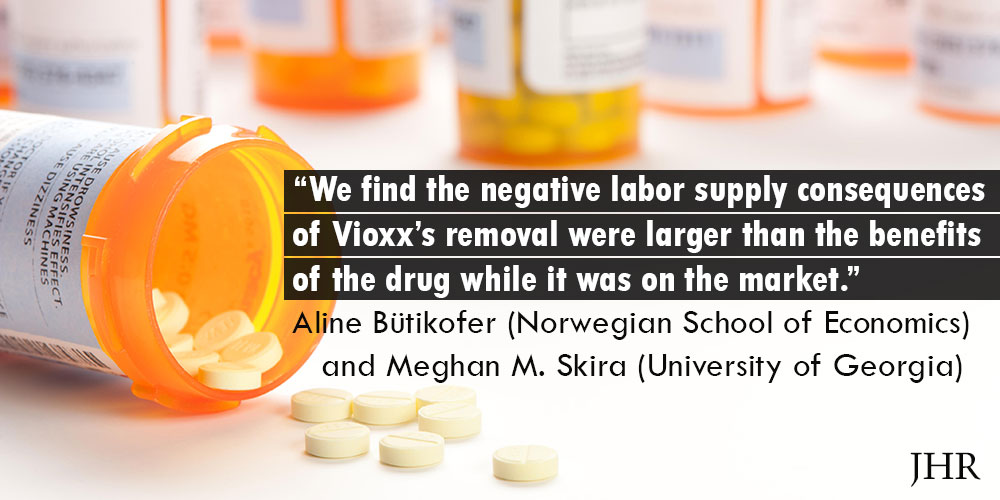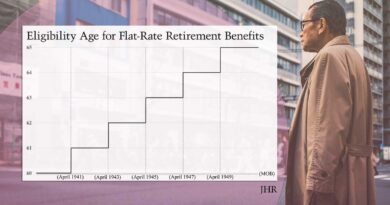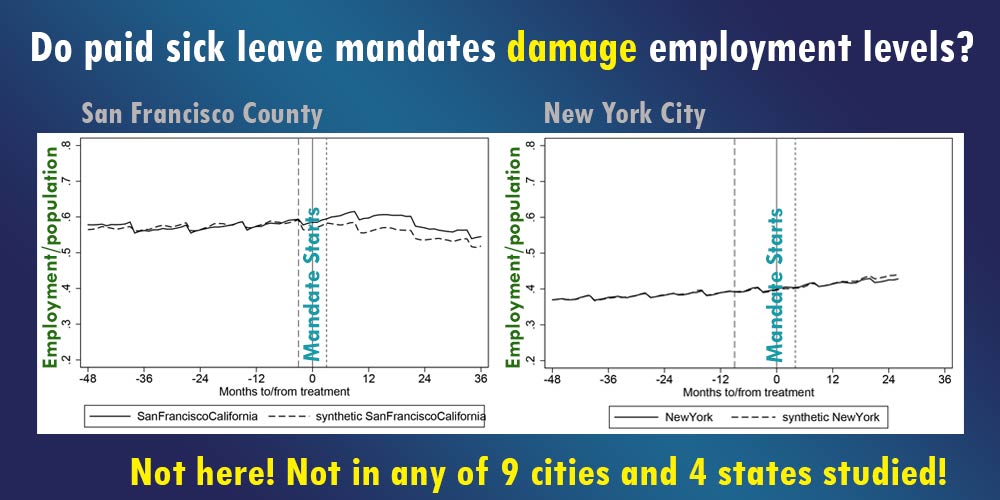Missing Work Is a Pain
When a popular drug is pulled from the market, what happens to those who suffer from chronic pain? Researchers find that removing Vioxx due to safety concerns left many unable to work.
Medical technology has improved dramatically, yet we know little about the impacts of medical innovation on the productivity and labor supply of workers.
Recently, Aline Bütikofer (Norwegian School of Economics) and Meghan M. Skira (University of Georgia) examined the effects of Vioxx, a once popular medication prescribed for treating pain and inflammation, on the workplace sickness absence and disability insurance enrollment of individuals with joint pain.
Using Norwegian administrative data, they analyzed the impact of Vioxx both when it was introduced onto the pharmaceutical market and when it was suddenly removed from the market in 2004 due to concerns over cardiac side effects.
The findings? The negative consequences of Vioxx’s removal were larger than the benefits of the drug while it was on the market. Relative to the years before Vioxx was on the market, the drug’s entry decreased quarterly sickness absence days among individuals with joint pain by 7–12 percent, while the withdrawal increased sickness days by 12–16 percent and increased the quarterly probability of receiving disability benefits by 6–15 percent.
The results emphasize the importance of accounting for economic impacts when determining the net benefits of medical technology. Considering labor supply effects and not just health outcomes and medical costs has implications for regulatory decision-making and the coverage and reimbursement policies of insurance plans and national healthcare systems.
The authors note, “Our findings also have potential implications for the drug approval process. The fact that the removal of a drug from the market can have negative economic effects that are larger than the benefits of the drug being available underscores the need to make certain the drug’s efficacy and safety before its market entry.”
Read the full study in the Journal of Human Resources:
“Missing Work is a Pain: The Effect of Cox-2 Inhibitors on Sickness Absence and Disability Pension Receipt,” by Aline Bütikofer and Meghan M. Skira.




